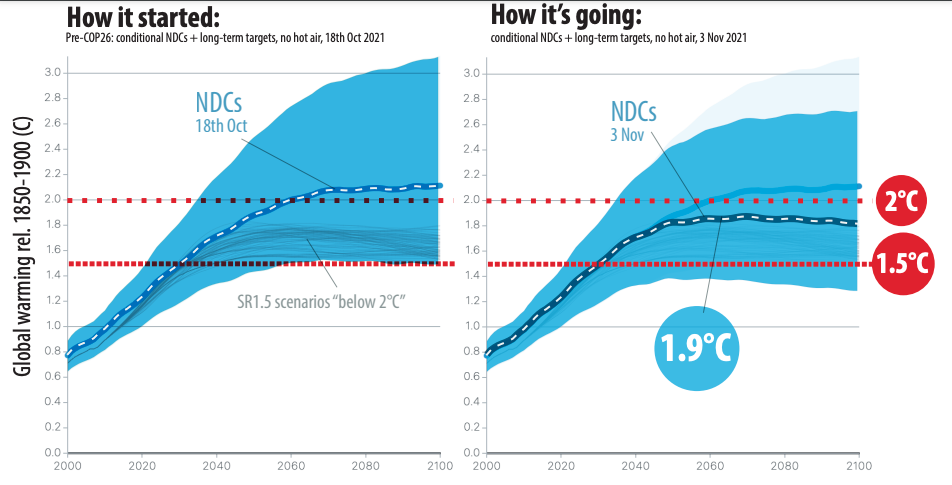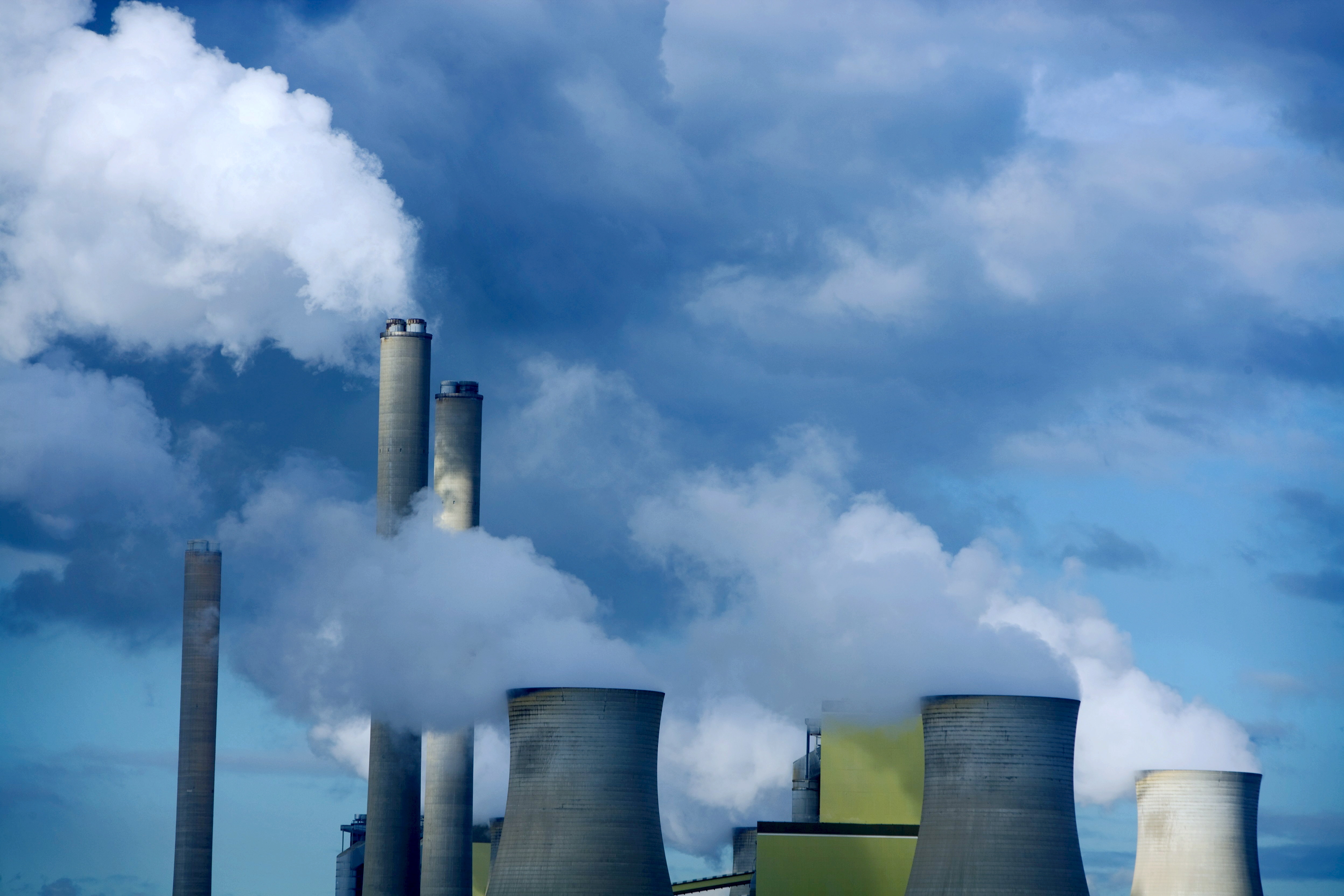More ambitious new emissions pledges from major polluters China and India could help the world keep global heating to 1.9 degrees, early analysis from three Melbourne researchers suggests.
The modelling, produced by the University of Melbourne's Climate Resource group, is the first to suggest warming could be kept to less than 2 degrees above pre-industrial levels — if all countries follow through on their long-term emissions commitments.
It's a major change from the 2.7-degree figure commonly cited in the lead-up to the COP26 climate summit in Glasgow but still a long way from the 1.5-degree limit most scientists agree is necessary to stave off some of the most devastating impacts of climate change.
READ MORE: COP26: South Africa to get $11 billion to help wean itself off coal

In a briefing paper released on Wednesday, Associate Professor Malte Meinshausen and his co-authors said new emissions reduction commitments — both criticised for not being ambitious enough — were the "major changes".
"For the first time in history, the aggregate effect of the combined pledges by 194 countries might bring the world to below 2 degrees warming with more than a 50 per cent chance," the authors said.
They said the modelling, which can be quickly adjusted to take account of new pledges, took into account dozens of long-term net-zero pledges. China, the world's biggest emitter, now plans to peak emissions by 2030 and get to net zero by 2060 while India, the third biggest, says it will hit the target by 2070 and generate half of its energy from renewables by 2030.
"It puts you for the first time ever in the ballpark of keeping global warming to less than two degrees or at least, you know, having a significant chance of doing that," Richie Merzian, climate and energy program director at The Australia Institute think tank, told 9News.com.au.
And that, it gives you hope, which is so important if we're going to be dealing with this crisis. But, there are some major caveats, the most important of which is that the model assumes the pledges are underpinned by real policies that make them possible.
READ MORE: Items seized as Cleo spends first night at home with family

"The huge, huge 'if' here is if countries' [climate pledges] are met, if they are implemented with actual domestic policies," Professor Meinshausen told The Independent.
"In order to get closer to 1.5C, there is no way other than to substantially increase emission reductions this decade.
"The 2050 targets are good and bring us so far, but to get to 1.5C, we really need stronger 2030 targets."
The researchers described Australia's net-zero pledge as "hollow", saying it needed climate policies, sectoral targets and a change of course to be achieved.
UK Shadow Business and Energy Secretary Ed Miliband said "any progress is welcome" but urged caution about declaring success based on "vague and often vacuous net zero targets three or more decades hence."
AS IT HAPPENED: A day Australia will never forget
https://twitter.com/Ed_Miliband/status/1455927038720847876"What matters most is this decisive decade," he said, on twitter.
"Eg Australia, 2050 net zero target but 2030 plans in line w 4C.
"Or Saudi Arabia's plan for net zero by 2060, while increasing oil production this decade.
"We cannot stand for such global greenwashing at this summit."
Even with the updated promises, the modelling suggests a 90 per cent chance of breaking through the all-important 1.5-degree barrier.
"You can pretty much say farewell to the Great Barrier Reef," Mr Merzian said of a 1.9-degree temperature increase.
"You're still going to have a huge amount of extreme heat and heatwaves and drought and superstorms and hectic bushfires.
"You're still going to have a lot of painful and severely damaging extreme weather impacts. Like these are things that we need to be avoiding at all cost."
Australian Prime Minister Scott Morrison arrived at COP26 able to commit to net-zero by 2050 and projecting a 35 per cent cut by 2030, but without updating the country's official target of 26-28 per cent, based on 2005 levels.
He told world leaders at COP26 the climate change challenge would be met by technologists, engineers, entrepreneurs, industrialists and financiers — those "largely not in this room".
"It is up to us as leaders of governments to back them in," he said.
The US's 2030 pledge is 50-52 percent while the UK promises to cut emissions by 68 per cent and the European Union pledges 55 per cent, based on 1990 levels.
Australia on Tuesday signed on to a deal to protect the world's forests but refused to sign a deal pledging to reduce emissions of methane, a particularly potent greenhouse gas.
from 9News https://ift.tt/3GOoJ3P
via IFTTT


0 Comments